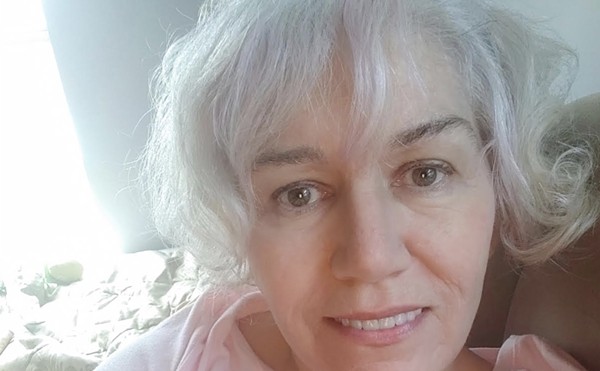The city of Orlando is about to be dragged into court over its habit of arresting homeless people. A local attorney is preparing a lawsuit attacking the city's "camping" ordinance, one of several used by police to sweep homeless people from downtown. And the American Civil Liberties Union, while considering sponsoring attorney Steven Mason's suit, itself is assessing the constitutionality of Orlando's panhandling ordinance. "Similar ordinances have been challenged elsewhere. They should take a close look at what happened in Miami," says Andy Kayton, legal director of the American Civil Liberties Union of Florida. "They are taking some legal risks." Last week, Kayton's office settled a 1988 federal lawsuit with the city of Miami involving police there arresting homeless persons for blocking sidewalks or camping in parks. In 1990, Miami police handcuffed homeless persons in a city park and burned their Bibles, clothes and watches. Under the settlement, which is subject to approval by Miami city commissioners, police must receive sensitivity training better preparing them for dealing with homeless people. But the settlement also leaves police with the authority to arrest and take to jail homeless people who refuse help, provided a bed in a shelter is available. This concerns homeless advocates. Brother Paul Johnson, executive director of a Miami shelter, told the Sun-Sentinel of Fort Lauderdale: "What if someone on the street doesn't want assistance from the police? They have a right to make that decision. They shouldn't have to go to jail if they don't want help." Also in the settlement, the ACLU will receive $900,000 in legal fees, while homeless persons able to prove they were improperly arrested or their civil rights were violated will receive debit cards worth up to $1,500. Kayton said the ACLU was leaning toward supporting Mason in his lawsuit contesting the constitutionality of the arrest of Kenneth H. Smith. Smith, 33, was arrested for camping about noon on June 29 at Wall Street Plaza after police watched him for about two minutes as he leaned against his duffel bag, with his eyes closed, apparently snoring. (Smith claims he was "meditating and enjoying the day.") He spent about two weeks in jail, although the charge was later dropped. The arresting officer reported that, a week before, he had noticed Smith apparently sleeping in Wall Street Plaza. After Smith confirmed he was homeless, the officer reported that he told Smith about the city's homeless shelters and warned him that he could be arrested for camping. Rather than filing a class action, as the ACLU did in the Miami case, Mason says he initially plans to sue the city simply on Smith's behalf. But, if successful in proving the law violated Smith's rights, Mason said he hopes to convince the courts to declare the city ordinance unconstitutional, preventing police from using it on other homeless people. "That's going to benefit the homeless a lot more than to litigate it for 10 years," Mason says. (Mason also wants the courts to require the city to pay for his work and court costs. His hopes of having his court costs covered by the ACLU are at risk due to a flap with the local branch over the division of the proceeds from a 1992 lawsuit. Alan Lunin, head of the local chapter, said the group would consider supporting Mason, once he had signed a retainer agreement. "Irrespective of the ACLU, I will file the case," Mason says.) In the past three years, Orlando police have taken more than 2,400 people to jail for camping, panhandling or loitering, according to jail records. And the frequency of the filings continues to grow. Through Dec. 7, Smith was one of 513 arrested for camping in 1997 -- almost double the 270 arrested on the charge in all of 1995. Over the same period, the arrest rate for panhandlers nearly quadrupled: from 126 in 1995 to 440 in little more than 11 months of this year. Such an approach to homelessness has drawn the ACLU's attention. And fresh from its Miami win, the group is turning its eye toward Central Florida. While unready to say the ACLU would support Mason or bring its own lawsuit, Kayton confirmed his office was compiling records on Orlando's panhandling ordinance. "They're dealing with homelessness as a law-enforcement problem rather than a social problem," Kayton says. "That always spells trouble."

WE LOVE OUR READERS!
Since 1990, Orlando Weekly has served as the free, independent voice of Orlando, and we want to keep it that way.
Becoming an Orlando Weekly Supporter for as little as $5 a month allows us to continue offering readers access to our coverage of local news, food, nightlife, events, and culture with no paywalls.
Scroll to read more Orlando Area News articles
Newsletters
Join Orlando Weekly Newsletters
Subscribe now to get the latest news delivered right to your inbox.
















